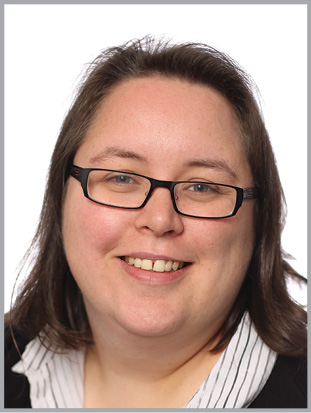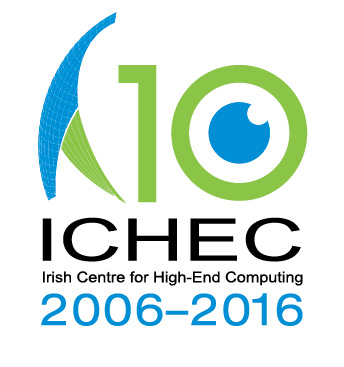10 years of ICHEC: 10 years of innovation


For the last decade, the Irish Centre for High-End Computing (ICHEC) has brought the benefits of technical computing to the public sector, academia and industry.
Partly funded by the State through the Department of Jobs, Enterprise and Innovation and the Department of Education and Skills, ICHEC is Ireland’s national centre for high-performance and technical computing, with world-class expertise in the exploitation of next generation compute platforms.
In 2016, we celebrated our tenth anniversary: 10 years of enabling innovation in Ireland.
National high performance computing service
ICHEC operates the national High Performance Computing (HPC) service and for 10 years has been guiding and providing researchers with HPC access that functions like ‘hidden energy’, a driving force behind discovery.
All Irish researchers have the opportunity to apply for access to Ireland’s national supercomputer ‘Fionn’. We have supported over 1,600 researchers on 1,200 projects to date, enabling high-impact research across academia. Supported projects come from across third level institutions in Ireland and across scientific and engineering disciplines.
Building on our experience managing the national HPC service, ICHEC have the ambition to provide a national data management service to met the current and future needs of the academic community. The trend towards open science will only add impetus to these requirements.
For projects that need computing power beyond the National Service, ICHEC links into PRACE, the Partnership for Advanced Computing in Europe, which provides access to some of Europe’s most powerful supercomputers. To date, Irish researchers have benefited from approximately 300 million core hours on PRACE machines, which has an estimated value of €2.7 million.
People-powered: leading through partnership
Technical computing drives research and innovation. Our world is increasingly awash with data, analysing it and extracting relevant information necessitates smart approaches. Through applying technical computing techniques, ICHEC can take software and increase its efficiency via better use of hardware, resulting in faster delivery of results; the ability to answer larger scale questions; and better capacity to deal with high-throughput data.
For example, we have worked in the financial sector to perform real-time risk simulations using Monte Carlo-based techniques, reducing the time for data analysis from several minutes to seconds.We have also accelerated medical devices research at the Royal College of Surgeons in Ireland and Dublin City University. Led by Prof Dermot Kenny, the project is developing a blood test for early detection of a person’s risk of heart attack or stroke. It uses imaging to measure how platelets in the blood sample behave and, by working with these partners, ICHEC has reduced the turnaround time of results from more than 24 hours to just a few minutes.
ICHEC is people powered. Our strength lies in its ability to assemble functional teams of domain experts, technologists, software engineers and project managers. Together, we leverage the centre’s knowledge in a multi-disciplinary approach to technical computing, data management and software engineering. This results in thriving programmes of public sector and industrial engagement, with well-known multinational corporations such as Intel, Xilinx and DataDirect Networks, high profile energy clients such as Tullow Oil and Bord Na Móna, SMEs such as Mainstream Renewables Power, Salaso Health Solutions, and Newswhip Media. As well as public bodies such as the Central Statistics Office (CSO), Teagasc, the Environmental Protection Agency (EPA), and Met Éireann.
Training for success
The advantages of technical computing – more accurate solutions, quicker, using less energy – are becoming vital to all sectors and at all levels of computing, from phones to supercomputers. Unlocking these benefits requires technical computing skills but even more fundamentally it requires computational thinking.
To address that need, ICHEC have a comprehensive training programme, with on demand courses offered at all levels. In the last three years, ICHEC has trained over 850 people in the public sector, academia and industry.
In the public sector, we provide training courses and workshops in statistical programming language R. Courses provide a background in computational thinking and are tailored to address the analytic needs of each group. Individualised sessions are available to deal with specific performance bottlenecks.
In the academic sector, foundation courses aimed at researchers beginning their career in scientific programming, C and Fortran are available, as well as introductory HPC courses. More advanced courses in OpenMP and MPI and manycore technology are also offered.
Leveraging our leading edge research with industry partners such as Intel, we also provide advanced workshops in novel computational techniques, which enable participants to unlock the power of parallel processing.
Furthermore, as part of our industry engagement programme we provide individualised training, building partners’ skills while working to identify, and implement solutions to address business needs.
The next generation
ICHEC is involved in many leading edge research initiatives, pushing the boundaries of the next generation of technical computing and the research enabled by it.
ICHEC is an Intel Parallel Computing Centre and we work to optimise software to run on the next generation of processors. This work is crucial to making the most of data at scale, and has the potential to transform data-intensive activities such as weather forecasting, climate modelling and anticipating conditions at sea. ICHEC’s unique skills set is required as this potential can only be realised through maximising the performance of the hardware through revolutionary approaches to software modernisation, including at the algorithmic level. As part of this work, we are collaborating with the US Department of Commerce National Oceanic and Atmospheric Administration (NOAA) to modernise their wave-forecasting code WaveWatch III.
This will enable higher resolution forecasting of extreme wave events benefiting forecasting agencies including Met Éireann, Météo France and the UK Met Office, as well as ICHEC’s academic collaborators such as Professor Fredric Dias, leading expert in extreme ocean waves, from University College Dublin.
Climate and weather research is among the most computational intensive work. ICHEC have expertise in climate research contributing to the high-profile intergovernmental Panel on Climate Change report as a part of global climate consortium EC-Earth. ICHEC works with manufacturers of computers to meet the needs of the meteorological community. The HPE/SGI Centre of Excellence on Climate Modelling is co-located with ICHEC and ICHEC work on European H2020 project Escape on the suitability of novel technologies from Intel and NVIDIA for climate and forecasting codes. ICHEC also work on H2020 project READEX which brings together European experts to develop state-of-the-art tools to reduce the energy consumption of software applications on emerging large-scale computing systems.
One of the exciting sources of data for science and HPC comes from satellites that orbit Earth, transmitting data about land, sea and atmosphere back to us around the clock. Using HPC techniques, ICHEC can extract more from this torrent of data. In collaboration with Irish company Skytek, we are in the process of setting up a portal for Irish researchers and industry to analyse and use satellite data from the European Space Agency’s Sentinel programme. Harnessing such data will feed research that stands to improve land use, coastal protection and enterprise – and could generate even better weather and climate models. These models and data could also be utilised by public sector organisations for emergency response services, town planning or agricultural modelling.
Looking to the future
Looking forward there is much exciting work on the horizon, with a strong commitment to leveraging the tremendous power of high-performance and technical computing for the societal and economic benefit of the people of Ireland.
ICHEC is co-funded by the Departments of Jobs, Enterprise & Innovation and Education & Skills, as well as from industry engagement and competitive EC programmes. ICHEC is hosted by NUI Galway with offices in Dublin and Galway.
Emma Hogan, Public Sector Liaison, Irish Centre for High-End Computing T: 01 524 1608 (ex. 36) E: emma.hogan@ichec.ie






